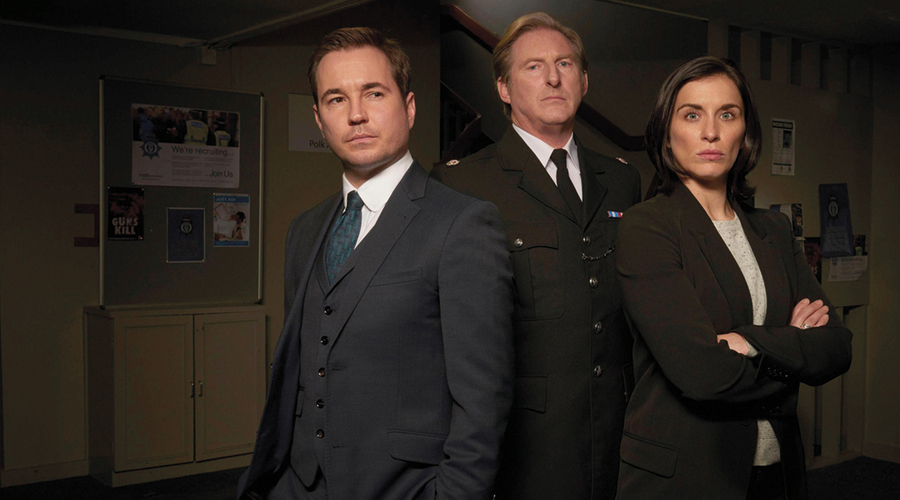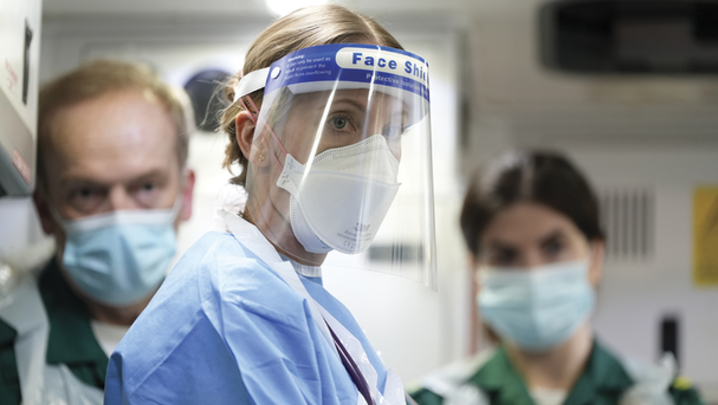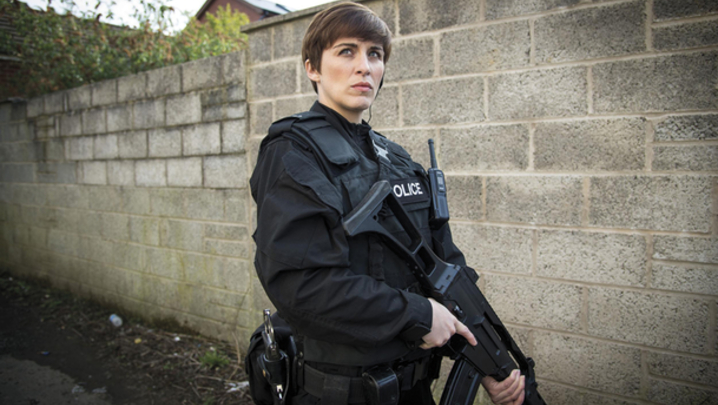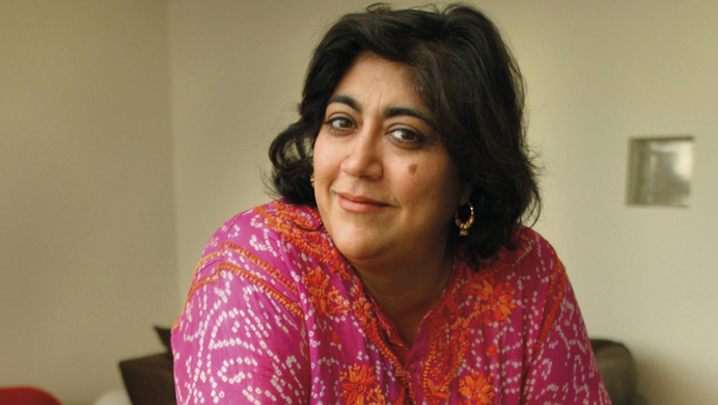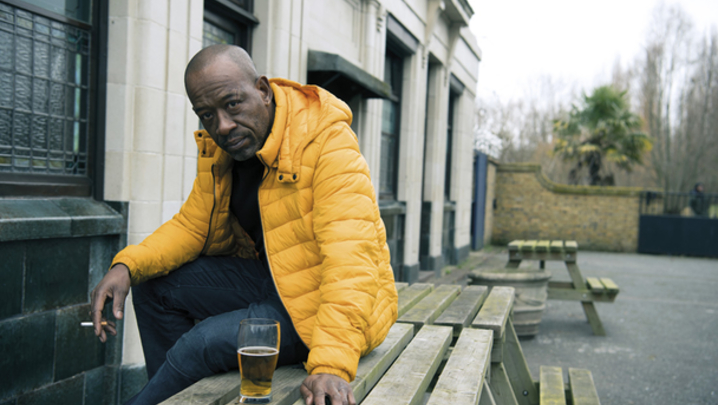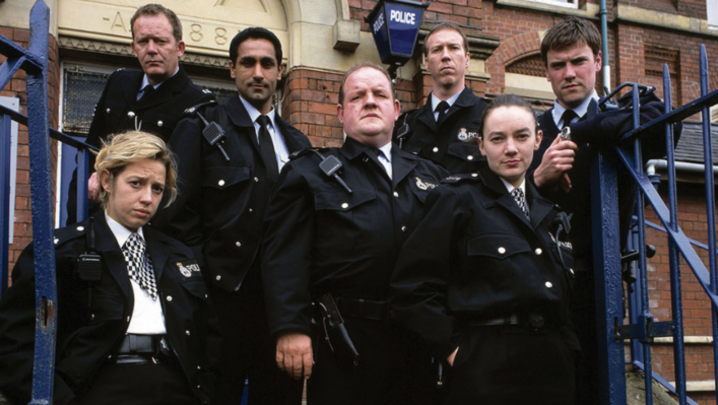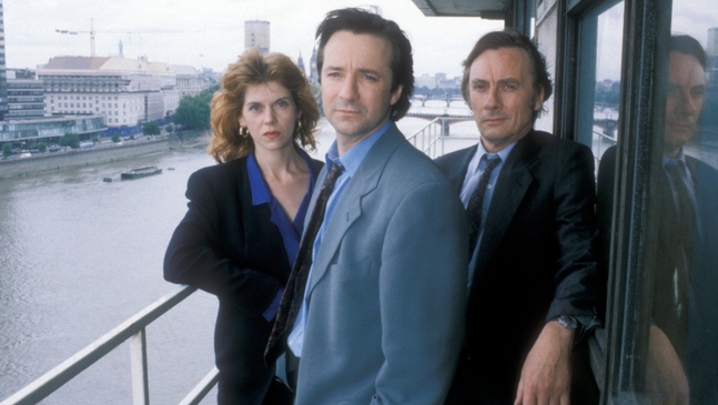Tara Conlan joins an RTS audience to learn how Jed Mercurio’s Line of Duty set a new benchmark for the police procedural
BBC One police corruption drama Line of Duty has become renowned for its thrilling plot twists and guest leads.
So, it was no surprise to see so many attend an RTS “Anatomy of a hit” event to hear what writer Jed Mercurio might reveal about what’s in store for the next series.
Season 5 will feature “things we haven’t done before” and “characters we haven’t seen before”, said Mercurio. He added: “That’s part of the construction of the series, the architecture that allows us to rejuvenate the format.
“Possibly, we kind of arrived at that accidentally. But it does appear now that we have this situation where the audience becomes intrigued about what we’ve got to offer based on who the guest lead is going to be, what character they are and what the fundamental premise is.”
The writer was joined by Adrian Dunbar, who plays Superintendent Ted Hastings (“at home, we call him ‘Mother of God’ now”, joked host Anne Robinson, referring to one of Hastings’ catchphrases). Also present were World Productions CEO and Line of Duty executive producer Simon Heath and script executive Priscilla Parish.
Line of Duty regularly attracts more than 7 million viewers and has won numerous accolades, including the 2015 RTS award for Drama Series.
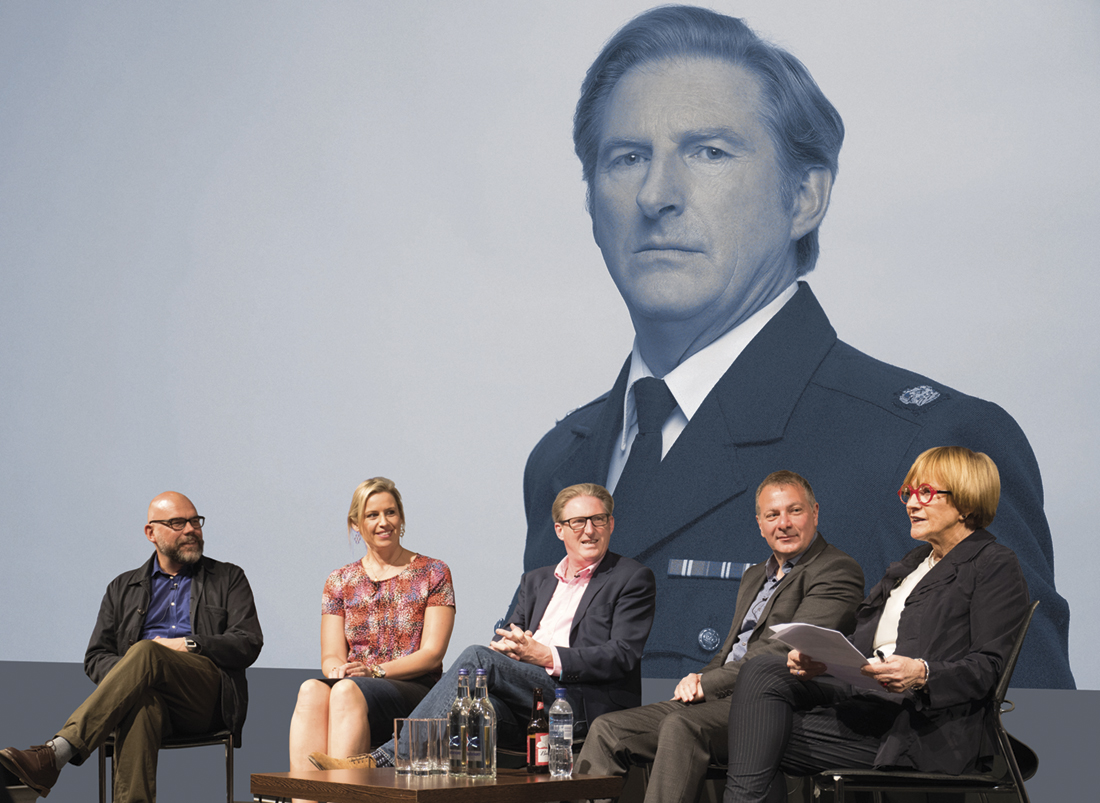
(Credit: Paul Hampartsoumian)
Robinson said that, as well as the compelling characters and “spine-chilling” drama, “what I love is the humour”. There were laughs throughout the evening, particularly when the panellists were asked whether the series could spawn a film. “Yes! Ted’s Excellent Adventure,” exclaimed Dunbar, to which Mercurio shook his head: “No, we’re a TV programme.”
“If you look at the TV landscape, it is sometimes quite difficult to sell an idea based [simply] on the fact that it is important in the real world”
Line of Duty, which began in 2012 on BBC Two, has been commissioned for two more series. Heath paid tribute to former BBC drama boss Ben Stephenson for bankrolling the show. Remember, this was before Netflix made scripted so fashionable.
The premise grew out of discussions between Mercurio and World Productions about him creating a police drama, during which the focus shifted to police corruption. He said that the show – now noted for its complex lead characters – didn’t “arrive fully formed. The ideas of having a guest lead and having the lead investigators return were all part of a process.
“If you look at the TV landscape, it is sometimes quite difficult to sell an idea based [simply] on the fact that it is important in the real world,” said the writer to laughs. “So many police series are the drama of reassurance – where honest, tenacious cops catch bad guys and the bad guys go to prison.”
One of Line of Duty’s USPs has been “the idea that we do not have outand-out heroes and out-and-out villains,” he said, emphasising that this had been the approach from the beginning. The first lead was Tony Gates, played by Lennie James, whom he described as inhabiting a “moral grey area”. “The same applied to the investigators: that felt like it led us into a more sophisticated and mature explanation of why public servants fail to act with integrity.”
Robinson applauded the programme’s ability to make audiences feel sorry for the villain through moral relativism. Mercurio replied that this was “intentional” but, “in a way, a departure from the real world”, because most corrupt people “are just greedy bastards”.
Initially, the show was turned down by BBC One. Mercurio declined to reveal the controller who rejected it but “if anyone’s got an iPhone in their pocket, it might explain”. Stephenson, however, wanted it for BBC Two because he liked the idea of interrogating an institution.
“It wasn’t a great time for drama,” recalled Heath. “It was around 2008- 2009.… We’re here talking about the golden age of drama, and all these dramas being made by Netflix and Amazon and Sky. But then, BBC drama was seen, at best, as a loss leader by the broadcaster.”
Mercurio said: “We always felt we wanted it to be a thriller… so you had to watch the six episodes and see how it would resolve. As the script was developed, we were fortunate that a new batch of money came online for BBC Two.”
Line of Duty found its natural home on BBC Two, he thought, as it “was allowed to grow and be itself on the channel and then we were ready to move to BBC One. The first episode got about 3.5 million viewers, the best drama series on BBC Two for years.”
While the first series was shot in Birmingham, the show is now filmed in Northern Ireland.
Northern Irishman Dunbar auditioned for the role of Hastings. He thought about the character’s background from his own perspective of being a Catholic living in a Protestant area: “To me, to be the head of a unit such as AC-12, it would probably have been useful to be someone who was on the outside of things.”
Which makes the whole freemason plot line in Line of Duty so puzzling, said Robinson, as she inquired of his character: “Are you a mason?”
“I’m not at liberty to answer that,” said Dunbar enigmatically.
“As a writer, I’m not thinking whether that is what a woman would do, or what a man would do, I’m thinking about what anyone would do.”
Dunbar also chose not to wear his glasses for the role, “which means I have to learn the script!”.
Some fans play Line of Duty bingo, watching the drama and crossing off Hastings’ trademark colloquialisms, such as “fella” or “for the love of God”, whenever Dunbar utters them.
Robinson wanted to know: “All those expressions of yours, like ‘Mother of God’, were they in the original script or have you enhanced it?”
“Jed has a great ear for street language and listening to what people are saying. These things creep in,” explained the actor. “I add a little bit here and there. We tease it out between us.”
Robinson asked Dunbar if he was ever worried that he would fall victim to the show’s propensity for surprising viewers by killing off characters played by famous actors, such as Daniel Mays and Jason Watkins – or if Hastings would be the next “bent copper”.
“Definitely, yes, that is a worry! But I don’t think Jed is going to get rid of Ted just yet,” insisted Dunbar.
Switching tack, Robinson wanted to know how women had been treated in Line of Duty. “About the same as men,” Parish responded. “Lindsay [Denton] had a tough time. She was a terrific character. I loved Lindsay, because she was so intelligent.”
Mercurio added: “As a writer, I’m not thinking whether that is what a woman would do, or what a man would do, I’m thinking about what anyone would do.”
But is Hastings sexist, probed Robinson. Mercurio explained: “There are a lot of cop shows that still do the thing of having an overt sexist, in a way that’s just so stupid – you’re just going to be up in front of HR and then out of a job.
“Whereas, if you are a sexist, the way to do it is very subtly. [Hastings’ actions] have left room for interpretation. Again, it goes back to that idea of grey areas: is he a sexist or is he someone who has a certain way of expressing himself – [but which] means a certain discrimination against women?”
“He’s from a different age,” put in Dunbar.
One member of the audience commented on Mercurio’s reputation for overseeing a collaborative approach on set. Had there been times where the four of them had disagreed heatedly, wondered Robinson? “No, Jed’s always right,” quipped Dunbar.
“It’s not how the process works. We discuss things and, if someone feels that something is not right, then we keep talking it through,” said Mercurio. He likes to spend as much time as possible on set, so people can clarify what the writer’s intention was.
For series 1, Mercurio did quite a lot of research. Since then, he said, he has had access to advisors who are frank, dedicated police officers who hate corruption and “bent coppers” but do “not deny they exist”.
When asked what surprises him about the institution, Mercurio answered: “The slackness… we had a sequence in series 4 where a police officer tampered with evidence. I’d assumed that the evidence room had security cameras in it, so that coppers couldn’t fiddle with evidence.… No… they said: ‘We’re workers entitled to our privacy.’”
“I remember the reaction on Twitter,” said Heath. “People said they’d have cameras.”
"I don’t think any of us at this point is looking to wrap it up."
“We had Adrian’s character explain it, saying he had written a very strongly worded letter to the Police Federation… that was the voice of the author!” revealed Mercurio.
He added that his opinion of the police had not changed, because, “fundamentally, the evidence… is that the vast majority of police officers are dedicated public servants.”
When asked whether season 5 or 6 would feature as fascinating a female lead as Denton or Roz Huntley, Mercurio would only say “maybe”. But he did confirm that the new episodes would further explore the personal lives of AC-12’s main characters – Hastings, Steve Arnott and Kate Fleming.
Fans hope that season 6 will not be the last. Mercurio said a lot depended on “how season 5 performs”.
He explained: “If it does very well and the current regime remains as supportive as it is, there will be opportunities to discuss season 7. I think that if, for whatever reason, those situations don’t apply, then, almost certainly, season 6 will be the last.… But we’re really happy that it’s ongoing. I don’t think any of us at this point is looking to wrap it up.”
Heath said: “We’ve never been pressured to be on air every year, so we get a break.… We can do other things and then come back to it… it feels quite fresh every time you sit down to another series.”
Audiences will have to be patient and bide their time. The next installment is not due to air until 2019.
The RTS event ‘Anatomy of a hit: Line of Duty’ was held on 15 May at Millbank Media Centre in central London. It was produced by Barney Hooper and Sally Doganis.
Interrogators pile on the heat
Executive producer Simon Heath highlighted three elements that contribute to the success of the show: the ‘fresh and visceral’ score, composed by Carly Paradis; the fact that it airs weekly, which allows it to be built on social media; and the amount of film that is shot during the programme’s lauded long interview scenes.
‘The devil is in the detail,’ he added. When the show has ‘Adrian [Dunbar], Martin [Compston] and Vicky [McClure], and the antagonist on the other side of the table, we’ve got three cameras going all the time, often turning over halfhour takes and everybody’s word perfect. You need all those shots to build the sequence in the edit.’
Such takes often require a day to shoot. ‘For us, it’s difficult – you’ve got to keep up the same level of performance,’ explained Dunbar. ‘But for the crew, it’s really difficult. We’re in a glass box and the lights are on it.
‘We have done 25-minute takes – 30 pages of the script. You’re not going to get that flow [with short takes], so to do it in one take is much better.’
The first lengthy scene in the first series was 12 minutes long. Doing it ‘was a big decision’, Heath recalled. ‘It was Lennie James who said we should do it in one go.’

